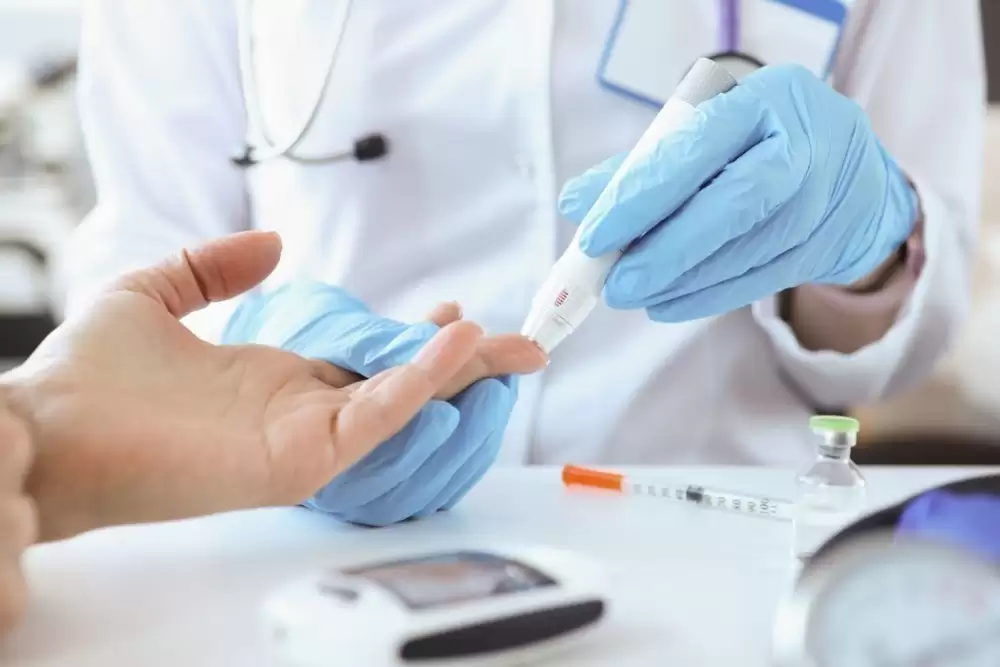Best Endocrinologist in Texas: Identified Proficiency in Hormone Medication
Wiki Article
The Science Behind Hormone Policy: Insights From an Endocrinologist
The Science Behind Hormone Policy: Insights From an Endocrinologist uses a thorough exploration of the intricate procedures entailed in hormonal agent law. Whether you are a medical expert looking for a deeper understanding of endocrine feature or a specific interested in learning regarding the scientific research behind hormonal agent policy, this publication is a vital source.Hormones and Their Functions
Hormonal agents play vital duties in the regulation and coordination of various physiological processes within the body. These chemical messengers are generated by endocrine glands and are launched right into the blood stream, where they travel to target cells or body organs to apply their results. The features of hormones vary and encompass nearly every facet of human physiology.One of the main features of hormones is to preserve homeostasis, which is the secure inner environment required for the body to work ideally. For instance, insulin, a hormonal agent generated by the pancreas, regulates blood sugar levels by promoting the uptake and storage of sugar in cells. One more hormone, cortisol, helps the body reply to stress and anxiety by enhancing blood glucose levels and suppressing the body immune system.
Hormonal agents additionally play essential roles in development and development. Development hormonal agent, produced by the pituitary gland, promotes the growth of cells and bones, while thyroid hormonal agents regulate metabolism and affect the development of the worried system - Endocrinologist in georgetown. Furthermore, reproductive hormones, such as estrogen and testosterone, are accountable for the advancement and maintenance of additional sexual features and the guideline of the menstruation
The Endocrine System: An Introduction
Playing a vital function in the guideline and control of physical procedures, the endocrine system is an intricate network of glands that produce and release hormones into the bloodstream. These glands, including the hypothalamus, pituitary gland, thyroid gland, adrenal glands, pancreas, ovaries, and testes, secrete hormones that act as chemical messengers, affecting numerous bodily functions. The endocrine system works in conjunction with the nervous system to preserve and manage homeostasis, making sure that the body's inner environment continues to be secure.The hypothalamus, located in the brain, is considered the master regulatory authority of the endocrine system. It creates hormonal agents that stimulate or inhibit the release of hormones from the pituitary gland, which consequently controls the activity of various other endocrine glands. The thyroid gland, situated in the neck, produces hormones that regulate metabolic process and power equilibrium. The adrenal glands, situated atop the kidneys, create hormones that assist the body react to anxiety and control blood pressure.

Policy of Hormone Production
The regulation of hormone production includes a complex interplay in between numerous glands and comments systems within the endocrine system. Hormonal agents are chemical carriers that play an weblink important duty in keeping homeostasis and working with various physiological procedures in the body. The manufacturing of hormones is firmly regulated to make certain the correct performance of the endocrine system.The hypothalamus, located in the brain, works as a vital regulator of hormone production. It launches hormonal agents that stimulate or hinder the manufacturing of hormones by the pituitary gland, which is usually described as the "master gland" of the endocrine system. The pituitary gland, subsequently, generates hormones that act on numerous target glands throughout the body, promoting them to generate and release specific hormones.
Comments systems additionally play a crucial role in hormonal agent guideline. When hormone levels increase over or fall below the optimum range, the body activates systems to either reduction or boost hormonal agent production, specifically, to bring back equilibrium.
Feedback Loops in Hormone Law
Responses loopholes play a critical function in the policy of hormone manufacturing. These loops involve a collection of communications in between the endocrine glands, hormonal agents, and target organs to keep homeostasis in the body. There are 2 kinds of comments loopholes: negative responses and positive responses.Negative click for more info feedback is the most common type of comments loop in hormone guideline. It functions by picking up the levels of a hormone in the blood and adjusting hormonal agent manufacturing appropriately. When hormone degrees increase above a certain threshold, the hypothalamus in the mind signals the pituitary gland to lower hormonal agent production. This, subsequently, lowers the excitement of the target body organ, leading to a decline in hormone secretion. On the other hand, when hormone levels go down below the limit, the hypothalamus stimulates the pituitary gland to boost hormonal agent manufacturing, recovering balance.
Favorable responses loopholes, on the other hand, intensify hormone manufacturing. This takes place when a hormone boosts the release of even more of the exact same hormonal agent, leading to a quick rise in its degrees. Positive feedback loopholes are less usual in hormonal agent policy and are generally included in details physiological processes, such as giving birth and lactation.
Factors Affecting Hormonal Agent Balance
Variables influencing hormone equilibrium include nutritional choices, way of living habits, and ecological exposures. These elements can have a significant influence on the fragile balance of hormones in the body, influencing different physiological processes and overall health.Dietary selections play a crucial role in hormonal agent regulation. Consuming a balanced diet that consists of a variety of nutrients is crucial for maintaining hormone equilibrium. Certain nutrients, such as omega-3 fatty acids, vitamins, and minerals, are especially essential for ideal hormonal agent function. On the various other hand, a diet high in processed foods, fine-tuned sugars, and unhealthy fats can interrupt hormone degrees and cause discrepancies.
Adequate rest is crucial for hormonal agent manufacturing and guideline, as interrupted rest patterns can lead to discrepancies. Additionally, persistent anxiety can dysregulate the hypothalamic-pituitary-adrenal (HPA) axis, an essential player in hormone regulation, leading to a cascade of hormone inequalities.

Verdict
In final thought, recognizing the scientific research behind hormonal agent guideline is vital for keeping general wellness and health. Hormonal agents play essential roles in different bodily features, and their manufacturing is controlled by intricate feedback loopholes.The Science Behind Hormone Guideline: Insights From an Endocrinologist supplies an extensive exploration of the complex processes included in hormone law. It produces hormones that promote or hinder the launch of hormones from the pituitary gland, which in turn regulates the activity of other endocrine glands. It launches hormonal agents that stimulate or inhibit the production of hormonal agents by the pituitary gland, which is typically referred to as the "master gland" of the endocrine system. The pituitary gland, in turn, generates hormones that act on various target glands throughout the body, boosting them to generate and launch specific hormonal agents.
When hormone levels climb above a specific threshold, the hypothalamus in the brain signifies the pituitary gland to decrease hormone production. (Texas endocrinology)
Report this wiki page